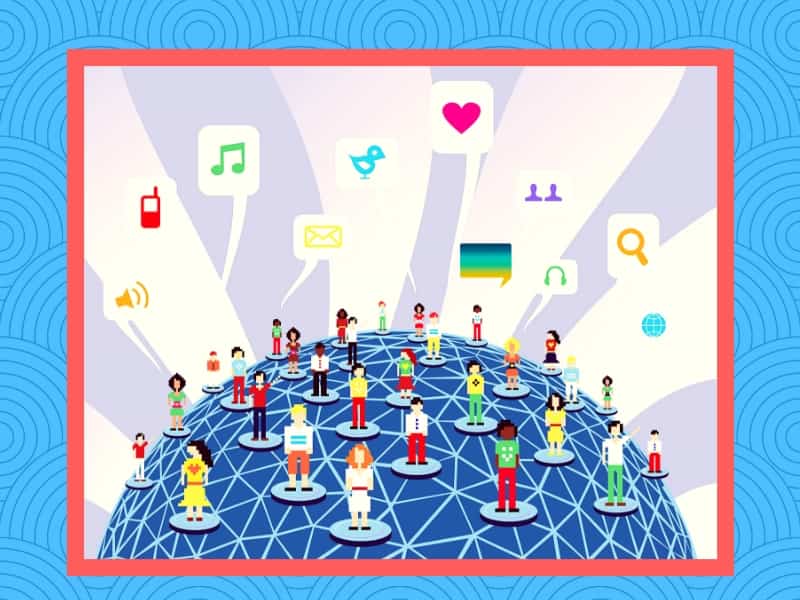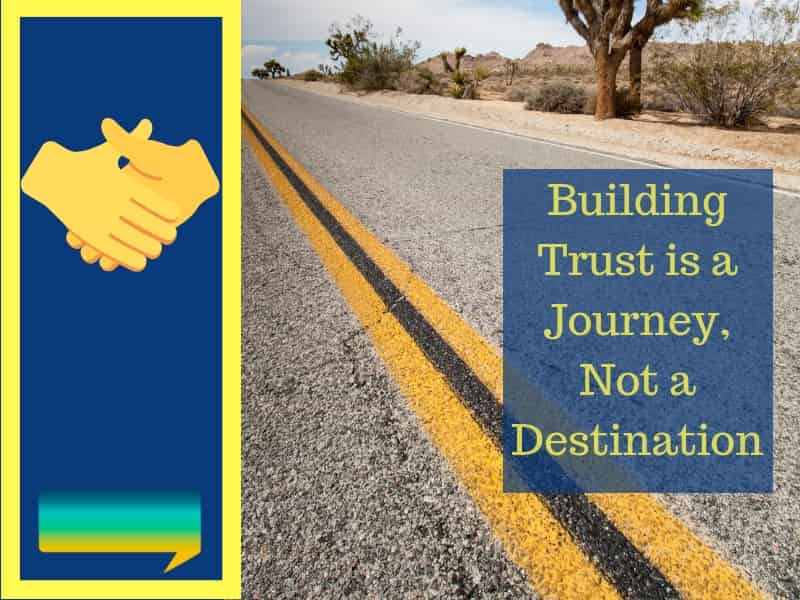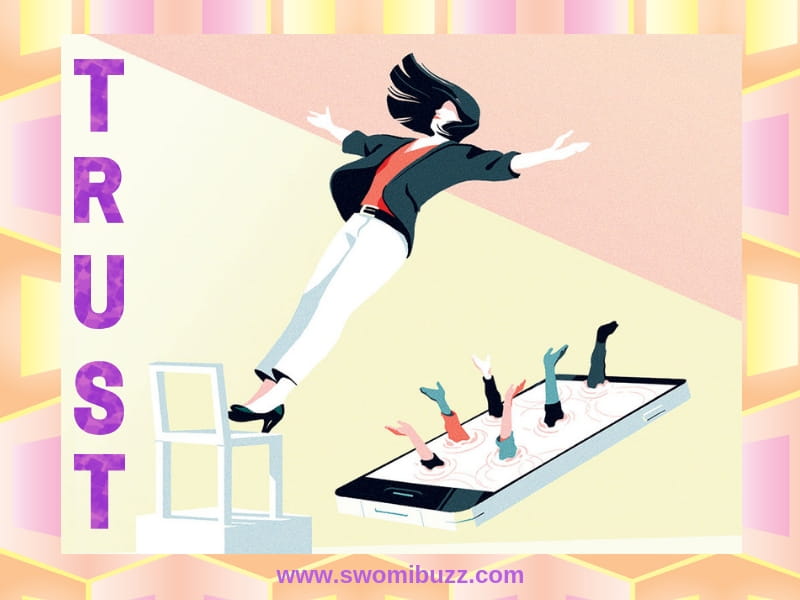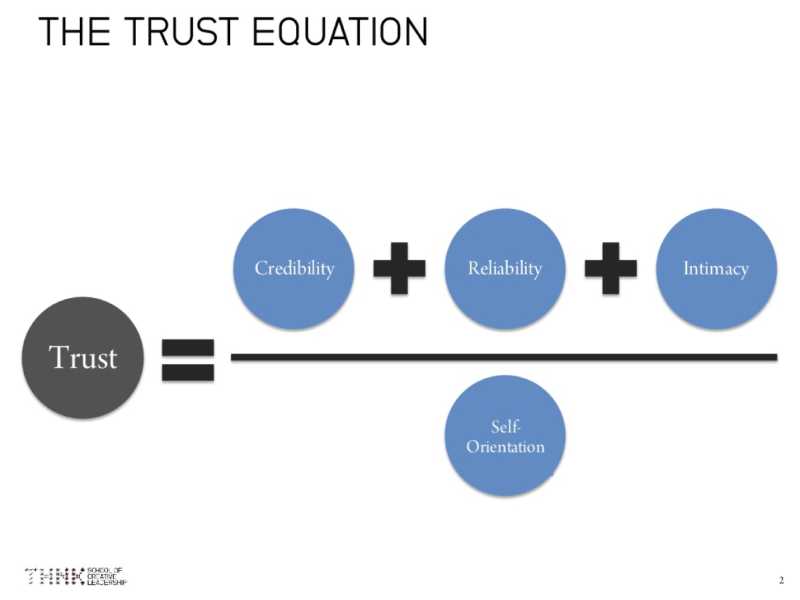How the digital age changes who and how we trust.
This article is letter (T) of our “Human Connect” series where we write an article for each letter of the phrase. “Human Connect” explores how relationships will change in the digital age. Find links to more articles in the series below.
Our entire world is built on trust. We trust the cashier to give us the correct change. We trust governments to run the country and banks to be responsible with our money. We trust doctors with our lives. In the anonymous online world, how is it we come to trust other people? Who do we trust when we truly don’t know who is on the other side of the screen? How do we show others we are trustworthy?
How The Internet Has Transformed Trust

Strangely enough, the internet has turned trust on top of its head. The above institutions we just mentioned, banks, governments, newspapers, have come to be distrusted by the public in general. According to NewScientist, “Nearly half of people in the US mistrust lawmakers, according to a poll carried out in June. In the UK, fewer than 1 in 4 people trust the press.” Because of the internet, standard top-down models have been replaced with peer-to-peer networks, a sharing economy.
Faith in authority is on the decline. How did this happen? Repeatedly, institutions took the public’s trust for granted. And because of the transparency of the internet, whistleblowers have the platform and audience reach to reveal unsavory underbellies the public otherwise may not know about.
Build Your Trust And Influence

That’s the state of public trust in a nutshell. We say that because the state of the world today will have effects on you, how you conduct yourself online, and the growth of your eBusiness. Although people have turned away from institutions, the online sharing economy has only grown:
“...we are putting more trust than ever before in people we meet on the internet. The sharing economy is booming. It is normal to invite strangers to sleep on our sofas, meet us for dates, pick us up in their cars and look after our pets. The internet has brought us to a tipping point, fundamentally changing who we trust and why. Technology allows us to make informed decisions and vet individuals.”
The internet has fundamentally changed how we live our lives and how we connect with other people. And according to Brian Clark of CopyBlogger, there are several guidelines people watch out for when going to vet an individual online. Just one of those criteria is a term Clark borrowed from Aristotle which is “Disinterested Goodwill.” Contrary to how it sounds, Disinterested Goodwill means you serve your audience and you are disinterested whether you get any benefit. In other words, you are giving without expectation.
Are You Trustworthy?

Many of us are curious to know the impression we give off. Sometimes we can be unaware as to how the world perceives us. THNK School of Creative Leadership helps by giving us a trust equation we can compare ourselves to. Don’t worry, we won’t be doing any math. It’s simply a set of characteristics that add up to make a trustworthy person. So let’s compare ourselves to the trust equation.

Are you…
...Credible?
- You have relevant expertise and/ or experience in your field
- Have a perspective on how to move forward
- Solve problems
…Reliable?
- Congruent: you walk your talk and follow your own advice
- Your behavior is consistent and dependable
- You deliver what you promise (words match actions)
…Intimate?
- Empathetic
- Willing to talk about difficult topics
- Ability to go from professional to personal
…Self-Oriented?
- Have a degree of focus on yourself and your goals
- Willing to truly understand the other person (listening)
- Generous: able to give and take
What areas of THNK’s trust equation are you strong in? Where do you feel you can improve on? By being honest with your answers, you are on your way to being a more trustworthy person.
Word Up:
Trust, an intangible feeling, has a huge impact on society. We see that, with the information age, trust has also been redirected from institutions to everyday people. From a top-down model to a peer-to-peer network. People living the Digital Lifestyle have come to trust connecting with another person rather than a faceless establishment. Because relating on a personal level is the name of the game now, developing yourself to be a trustworthy person will give you the ability to connect with others. A skill more valuable than anything else.
This article is part of our “Human Connect” series where we write an article for each letter of the phrase. “Human Connect” explores how relationships will change in the digital age.
Click below to read more articles in the “Human Connect” series:
(H)uman Connection In The Digital World
(U) + Others: Connect With Anyone Online Or Offline
(M) Why Your (M)essage Matters More Than You Think
(A) Can’t We All Get Along? Our Relationship With (A)I
(N) How To Grow (N)ew Connections Into Lifelong Friendships
(C) Here's What No One Tells You About Online (C)ulture
(O)nline/Offline Human Connection Now And For The Future
(N) The Hidden Power (N)ew Stuff Has On Your Brain
(N)ew Ways To Communicate Online
(E) Understanding The Background And Future Of (e)Stuff
(C) The Surprising Secret About Being A (C)ontent Creator
(T) What Matters When You Are Learning To Trust People Online?



